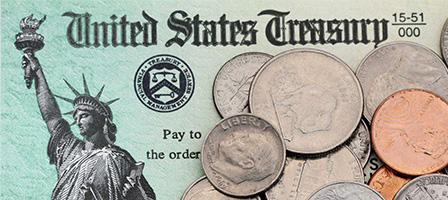Easily Check the Status of Your Refund
 Article Highlights:
Article Highlights: - Your Federal Tax Refund Status Can Be Checked Online
- Delay When Claiming Earned Income Tax Credit or Additional Child Tax Credit • “Where’s My Refund?”
- Refunds Are Generally Issued Within 21 Days of E-Filing
- Paper Filed Return Will Take Longer
- Information Needed to Check Refund Status
- Direct Deposit Provides the Quickest Refunds
- When to Call the IRS
“Where’s My Refund?” is an interactive tool on the IRS website at IRS.gov. Whether you have opted for direct deposit into one account, split your refund among several accounts, or asked the IRS to mail you a check, “Where’s My Refund?” will give you online access to your refund information nearly 24 hours a day, 7 days a week.
If you e-file, you can get refund information within 24 hours after the IRS has acknowledged receipt of your return. Generally, refunds for e-filed returns are issued within 21 days.
However, if you file a paper return, there is no assurance when your refund information will be available. In the past, the IRS said it would be available within four weeks of filing. However, due to COVID-19 delays, it is taking the IRS longer to process paper-filed returns, although they do process them in the order received. So, expect delays and do not submit a second return. To be on the safe side, be sure to obtain proof of mailing from the USPS.
When checking the status of your refund, have a copy of your federal tax return handy. To access your personalized refund information, you must enter:
- Your Social Security number (or Individual Taxpayer Identification Number);
- Your filing status (single, married filing joint return, married filing separate return, head of household, or qualifying widow(er)); and
- The exact refund amount shown on your tax return.
- Acknowledgment that your return has been received and is in processing.
- The mailing date or direct-deposit date of your refund.
- Notice that the IRS has been unable to deliver your refund because of an incorrect address. You can update your address online using the feature on “Where’s My Refund?”
When should you call the IRS if you don’t receive your refund? You should only call if it has been:
- 21 days or more since your return was e-filed,
- 6 weeks or more since you mailed your return, or
- When "Where's My Refund" tells you to contact the IRS.
Many states also have a Where’s My Refund? feature on their tax department’s website. Google Where’s My Refund with the name of the state.
If you have questions related to your refund, please give this office a call.
|
|  |





